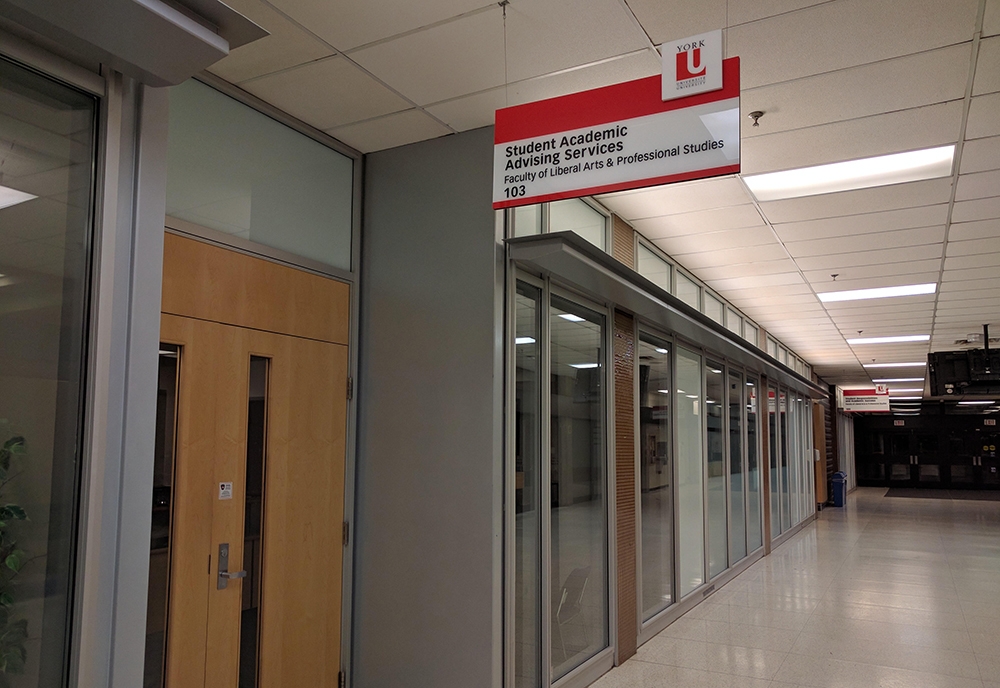Arfi Hagi Yusuf | Features Editor
Featured image: As midterm season approaches, students wonder if their program is suitable for them. | Jenny Mao
Countless appointments at academic advising centres and casual chats with classmates reveal an interesting pattern: program hopping. Students are seemingly switching programs during their studies in record numbers. According to the University of La Verne, between 50 and 70 per cent of undergraduate students change their program after enrolling in post-secondary; at York, roughly 9,500 students a year request a change of program, says University Registrar Carol Altilia.
It is unrealistic to ask a teenager the direction of their academic career when a few months prior to attending university or college they still had to ask for permission to use the bathroom. The decision of what to study for four years is undoubtedly one of the hardest made as a teenager. Students may choose their majors in a hurried fuss during their final year of high school, driven by the prospect of making big bucks or anecdotal misinformation regarding a certain program.
There is no shortage of students at York discussing the potential switch, or who are in the midst of transitioning into another program. As part of many post-secondary programs, general education courses are a prerequisite, exposing students to new topics and issues they may have never had an interest in.
Yun Lin, fourth-year human rights and equity studies, or HREQ, major and English minor, was a former English major. “In my first year I took a course [outside of my major] that really made me think about the world around me and re-assess my own beliefs and values. It still is one of my favourite courses I’ve ever taken. The course content was incredibly engaging and eye-opening. After speaking to [my professor], he told me about HREQ studies,” says Lin.
Christa Boadi, first-year communications student and former business finance student at Sheridan College, shortened her business finance three-year co-op program at Sheridan to the regular two-year program, and then applied to the communications program at York.
“I originally just picked business because it seemed secure. But after working in the field a few times, I didn’t really look forward to working with numbers and filing everyday. I went to the career counsellor at school and she really helped me narrow down my interests and true goals in life,” she says.
A general dissatisfaction with a student’s program can prompt the change. As students begin taking required courses, they get a sense of whether the program is for them. The problem with this approach is that experience is mandatory, and with experience comes mistakes. Relying on stories from former students can become problematic, as the general sense of what classes offer differs from person to person.
Christian Felip Rizaldo, former English major and philosophy minor, and now a third-year environmental student, says his switch was influenced both by career possibilities and a sense of belonging to that program: you’re either happy or unsatisfied.
“Switch to another [program] that you believe would provide a future you’d love to see yourself in,” he adds.
With dissatisfaction comes a lack of passion and motivation. Phrases like “do what you love and you’ll never be broke” are often thrown around.
Sarah Sookwa, first-year business and society student and former psychology student at the University of Waterloo, says that when you change your program, everything changes, from your study habits, to your motivation and conversations with friends.
“Sometimes it takes people longer—all that’s important is to be true to your wants and needs and to be brave enough to take action,” she adds.
Job prospects naturally play a major role in the decisions made by students. As the cost of living increases and wages struggle to keep up, millennials are pressured to find a stable job that will allow them to meet the lifestyle they want to achieve. Factors like a shrinking middle class and the decreasing value of a bachelor’s degree due to its commonality contribute to students switching to more practical programs.
Fourth-year theatre student Alex Colle notes a similar trend: “As a theatre major, I’ve seen countless friends have second thoughts about potential career paths after university. I find people are usually scared about money and security, which the theatre world does not have much of. I find that these people jump into [a] more secure program of study when they leave our program, such as biology or nursing.”
Altilia points to several other reasons why students switch programs, including changing to their desired majors after being offered alternative ones. Other students find it difficult to meet the academic requirements of programs, prompting a switch. Altilia also mentions that a number of students make minor changes to their degrees, such as adding specializations, majors and minors, which are all counted as making program changes.
With files from Cedric Cruz.




